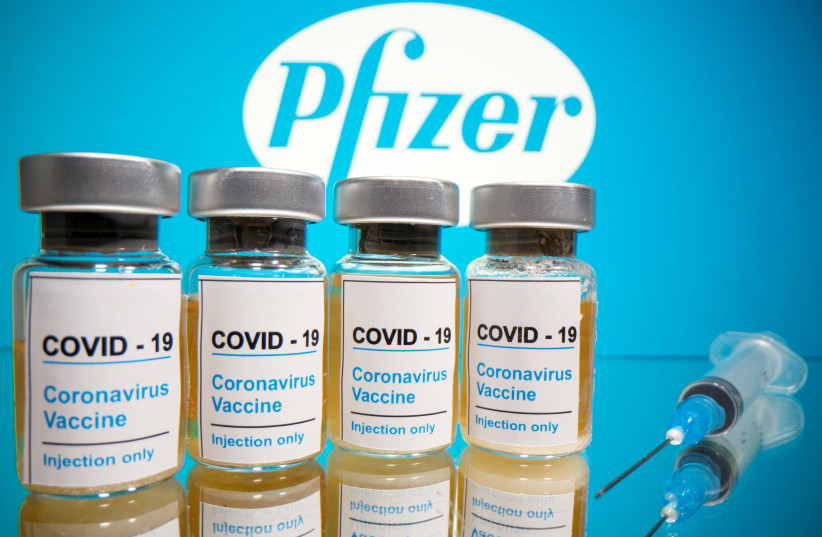Pfizer and Moderna vaccines are only around 95% effective, that means that 5% of people are prone to contracting coronavirus even after they are fully vaccinated.

Health officials have expressed concern that people who get the jab are becoming overconfident in their immunity, removing their masks and going back to some of their habits from before the pandemic. And the result could be infection.
But one week after completing the vaccine program, aren’t people supposed to be immune to coronavirus?
There are several reasons why one might develop COVID-19 after vaccination, according to Prof. Jonathan Gershoni of the Shmunis School of Biomedicine and Cancer Research at Tel Aviv University.
The first is that the Pfizer and Moderna vaccines are only around 95% effective, which means 5% of people are prone to contracting coronavirus even after they are fully vaccinated.
The second is variants.
The Pfizer and Moderna vaccines were developed based on the original coronavirus strain as discovered and genetically sequenced in Wuhan, China. Since then, the virus has replicated and mutated into thousands of different variants, some of which might render the vaccine less effective.
“We know in Israel that now, the majority of infections are from the UK variant,” Gershoni said.
While these vaccines have already proven to be reasonably effective against the South African variant and even more so against the UK variant, they are not as effective as against the first strain, he told The Jerusalem Post. Furthermore, there could be other variants that are even more vaccine resistant.
Another reason is that immunity is “a numbers game,” he said.
The disease or the vaccine causes our bodies to develop antibodies against the virus. But if someone has an extremely high viral load and sheds that potent load, it is possible that this large amount of virus could break through the existing protection and infect the person. In this case, it would likely only cause mild disease.
Finally, each person is unique and has her or his own molecular immunological makeup.
“We know some people have a tendency to be very robust and stand up to infections, and other people can be a bit more sensitive,” Gershoni said. “When talking in terms of vaccinating five million people in Israel, you are seeing the full spectrum of people with various levels of immune competence.”
But he cautioned that when we talk about “breakthrough infections,” sometimes people were infected before they got their second dose or even their first.
Moreover, those who do contract coronavirus after vaccination rarely suffer from a severe version of the disease.
“One has to put it into perspective,” Gershoni said. “Those who do get infected typically are not subject to devastating disease and death.”
This statement that vaccination renders most breakthroughs as mild disease is backed up by the latest Health Ministry data, which was released to the Post. The data showed that of the 3,387,340 people who were fully vaccinated against coronavirus (two doses plus seven days), only 4,711 caught the virus, or less than 0.2%.
Of those, only 907 people had any symptoms, including 429 who were hospitalized, among them 271 who developed a serious case of the disease.
Some 99 people died after being fully vaccinated.
Gershoni compared the vaccine to the Iron Dome, which has protected the country from thousands of rockets and missiles but has still missed a few nevertheless.
“I don’t believe anyone in Israel would say, let’s abandon the Iron Dome because it is not 100% efficient,” he said. “Similarly, vaccinations are amazingly effective, but nothing is ever 100%.”
As reported by The Jerusalem Post
